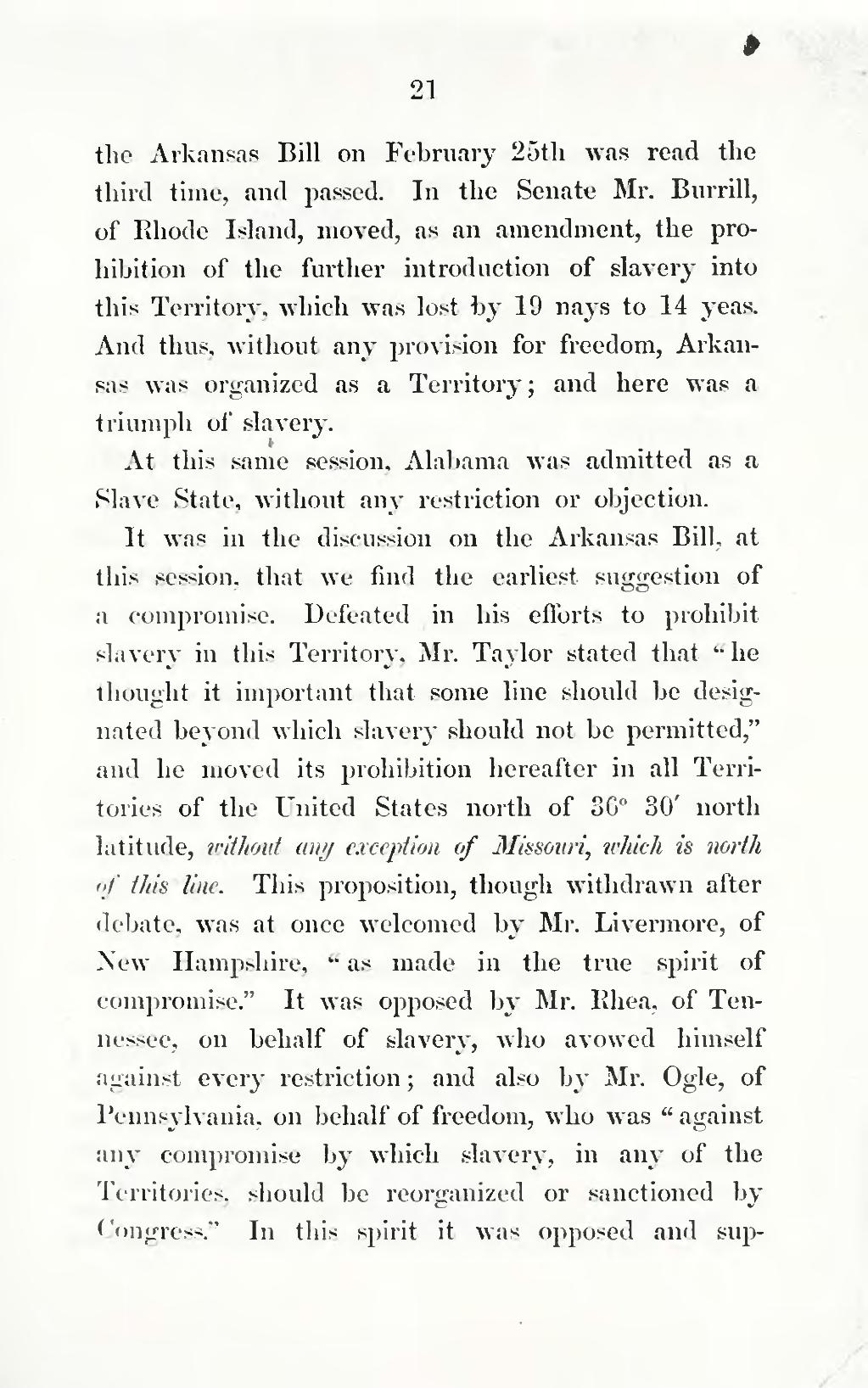the Arkansas Bill on February 25th was read the third time, and passed. In the Senate Mr. Burrill, of Rhode Island, moved, as an amendment, the prohibition of the further introduction of slavery into this Territory, which was lost by 19 nays to 14 yeas. And thus, without any provision for freedom, Arkansas was organized as a Territory; and here was a triumph of slavery.
At this same session, Alabama was admitted as a Slave State, without any restriction or objection.
It was in the discussion on the Arkansas Bill, at this session, that we find the earliest suggestion of a compromise. Defeated in his efforts to prohibit slavery in this Territory, Mr. Taylor stated that "he thought it important that some line should be designated beyond which slavery should not be permitted," and he moved its prohibition hereafter in all Territories of the United States north of 36° 30' north latitude, without any exception of Missouri, which is north of this line. This proposition, though withdrawn after debate, was at once welcomed by Mr. Livermore, of New Hampshire, "as made in the true spirit of compromise." It was opposed by Mr. Rhea, of Tennessee, on behalf of slavery, who avowed himself against every restriction; and also by Mr. Ogle, of Pennsylvania, on behalf of freedom, who was "against any compromise by which slavery, in any of the Territories, should be reorganized or sanctioned by Congress." In this spirit it was opposed and sup-
